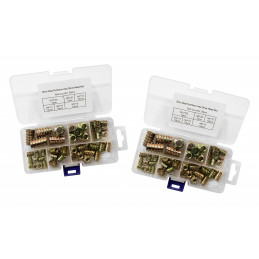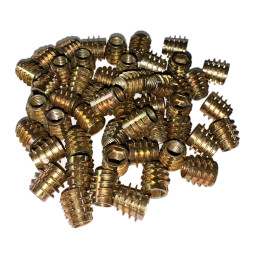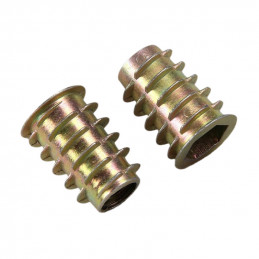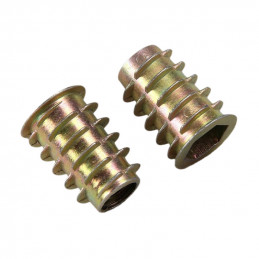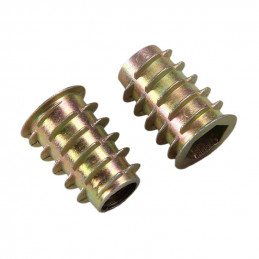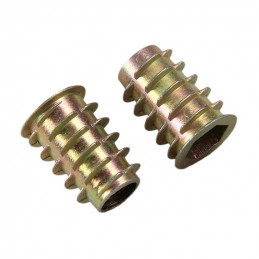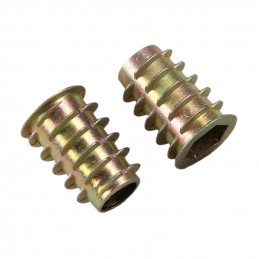Drill out first
The screw-in nut can be installed once you have drilled out the material where it should go. On one side of the rampa nut there is a hexagonal recess that allows you to screw the screw-in nut into the wood with an Allen key. By using an Allen key you are able to apply more pressure while still keeping the screw straight. In this way, the nut can easily be screwed into the notch without damaging the case.
When to use a screw-in nut?
If you are planning to place castors under a cupboard or table or to replace one wheel on your old office chair you could use screw-in nuts. Use an Allen key to place the rampa nut in the chair or table leg or under the cupboard where you first drilled a hole. You simply screw the thread of the new swivel wheel into the mounted screw-in nut. Note the thickness of the castor bolt. The Wood, Tools & Deco ramps are available in:
- M4
- M5
- M6
- M8
- M10
Perfect for making fixings in soft material
Tightening a bolt in a chipboard cabinet? That could be a problem because the threaded rod does not get enough grip to be able to fix itself in the cabinet. Chipboard is too soft and crumbles when you try to screw a metal bolt into it. In this case, the screw-in nut is the perfect solution! Thanks to the coarse pitch on the outside, it easily turns in chipboard. Now you have created a good opportunity to fix the bolt. The rampa nut has metric screw thread on the inside. You can now easily mount drawer slides in the cupboard, place a clothes hook, a clothes rail or mount wheels under the cupboard.















